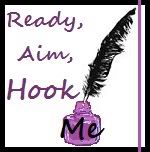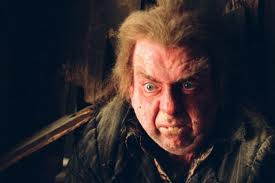People call me Tombstone. No, really, they do. And it has nothing to do with the fact that I delivered pizza for years. It also has nothing to do with the fact that I write about morbid and gruesome topics much of the time. In fact, the whys and hows and ins and outs of my extremely cool moniker are not why I am here today.
Today, the ladies asked me to fill a guest spot on the page, and so I, being the gracious and accepting friend that I am, obliged.
Speaking of ladies . . . and pizza, I’d like to talk about one lady in particular.
618 Nightingale.
That’s where she lived. Important information for when she called the Round Table Pizza establishment I worked at and asked for a pie to be delivered. I answered the phone expecting the call to be like any other.
It wasn’t.
Her voice—sensual, sultry, luscious, and filled with a timbre that flirted on the line between alto and soprano—sent my blood boiling moments after it filled my ears. Delivery drivers fantasized about voices like that, hoping beyond hope that reality would live up to fantasy.
She knew what she wanted. Pepperoni, mushroom, and sausage—and maybe I could deliver it to her. The meat and vegetable innuendo lodged itself deep in my mind, replaying with alarming frequency before the call had ended.
How could I get the delivery to 618 Nightingale?
I heard each fluctuation of her voice—the tremors, the giggles—and each little tactic she used to manipulate my hormones. Even though I knew she was using her voice for her ulterior motives, I let her do it anyway. Why? Because the sound of her voice intoxicated me, and I no longer cared for what ends she planned.
All the astral bodies aligned when I randomly accepted the opportunity to deliver her pie.
Sorry folks, I know you want a nice climax to the story, and will probably want to put me in a tombstone for cutting the story portion of our program right here, but I will finish the tale on my next guest post. In the mean time, let’s talk about voice.
Oh, the things voices do to us.
They can get our blood roiling, or frighten us; they can even set us laughing. The possibilities of voice are endless.
However, when I read statements from agents and editors talking about voice, it becomes clear to me that many of them don’t understand what it is. (Shhh, don’t tell some of them who might see this post on the interwebs that I said that!) Often, I hear vague statements that say something to the effect of “it’s the writer’s style” or “it’s the tone and style of the writer.”
How many of you have heard statements like this before? How many of you have read blogs or articles about voice and felt like the author left you with information as vague and abstract as finding The Blessed Mother Mary in a syrup formation on your French Toast?
In an attempt to cut the crust from the French toast and just get to the good stuff, let me say this: a linguist named Gibson sliced style into three parts of a triangle. This is what he said: style as it manifests the writer’s stance toward the subject matter is called attitude; style as it manifests the writer’s stance toward the audience is called tone; and style as it manifests thewriter is called voice, or persona.
If this is true, then style is more than voice. (Often I see the two terms used interchangeably, which I believe is incorrect.) I would also like to point out that if this is true, then one’s writing voice changes depending on the situation. Did you notice the shift in how the blog felt or sounded when I left the Pizza Delivery story compared to the portion where I began to speak about voice?
Our spoken voices change depending on the situation. When we are angry, our voices become loud, raspy, booming, and cutting, while sometimes our voices become low, sultry, and delicious when we flirt or want to be sexy.
The same thing happens with people when they sing. Voices often change when one is singing the National Anthem as compared to “Back in Black.” Obviously, opera singers have a completely different style than rock singers. Why? Because attitude and tone determine which voice we should use. Think about the differences needed to convey the emotions felt in “Hotel California” by the Eagles versus “Habanera” from the opera Carmen. (It should be noted that skill also determines how one develops his or her voice as well. I am sure Pavarotti could sing just about any rock song and sound good, though I’m not sure Bono could sing anything from Don Giovanni and sound fantastic. Becoming skilled at writing will help also help develop your
voice.)
So my conclusion is that those parts of style called tone and attitude often dictate which voice we should use. As a writer, are you going to use your inside or outside voice, your sarcastic or serious voice, or your sexy or naïve voice?
Some of this may still sound a bit abstract, vague, and complicated, but let me give you a little exercise to help you develop your own voice if you feel you are struggling with the concept.
First, think of a few authors you like and admire. Second, think of one word, and only one word, to describe how one of their books felt to you as you read it. Here are mine: Michael Chabon and The Adventures of Kavalier and Clay—verbose; Kurt Vonnegut and Slaughterhouse V—sarcastic; and Ray Bradbury and Something Wicked This Way Comes—Octobery. (Yes, ladies and gentlemen, Octobery is a word. I just coined it!)
Now finally, think of your work and your attitude—that is, your stance towards the subject matter, and decide where you stand. Then do the same for tone. Discover your feelings toward your audience. If you do, it will help you discover your voice. Will you be comedic, serious, sexy, mean, or stupid? Each of us has our own voice dependent on the attitude and tone of whatever situation we find ourselves in. Are you seducing someone or making them laugh?
And if you think about these other two aspects of style (attitude and tone), accordingly, you will find your own voice and not be carried by those authors you tried to emulate when you first started writing.
Ladies and gentleman, if this is helpful, please, let me know. Also, if you have other tips and tricks for understanding and developing voice, put them in the comments so that we can share and grow as a writing community. In the meantime, I’ll leave you with this teaser for my next guest post.
618 Nightingale.


















